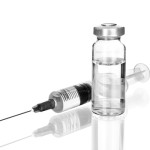 Massachusetts Bill Will Crack Down on Compounding Pharmacies to Prevent Another Fungal Meningitis Outbreak, Among Other Problems
Massachusetts Bill Will Crack Down on Compounding Pharmacies to Prevent Another Fungal Meningitis Outbreak, Among Other Problems
Last year, a nationwide outbreak of fungal meningitis caused several problems or patients and hospitals. The outbreak was eventually linked back to the New England Compounding Center, which sent tainted steroidal injections in large batches to pharmacies and hospitals across the country.
According to an article in the New York Times, the Conigliaro family, owners of the NECC, faced intense scrutiny from both state authorities and personal injury attorneys. According to investigations, the Massachusetts-based company was not leaving enough time for proper sterilization of their products – the investigators found “dirty mats and hoods, a leaky boiler, dark debris floating in vials of medicine”
The fungal meningitis outbreak pointed to a larger problem with compounding pharmacies. The centers exist to create specific, strong drugs for particular prescriptions, not in large batches. However, because the FDA does not have clear regulatory standards for compounding pharmacies, they are able to circumvent some of the rules and create large batches of barely-regulated and –inspected drugs.
“The agency is particularly concerned about the large-scale distribution of compounded sterile drugs to health care facilities nationwide when compliance with appropriate standards for large-scale sterile production may not have been met, potentially putting patients at risk,” FDA spokeswoman Sara Clark-Lynn said in an email.
The NECC has been shut down, but strong concerns remain across the nation regarding compounding pharmacies and further potential outbreaks, including more fungal meningitis outbreaks caused by injectable drugs.
Now, Massachusetts lawmakers are taking a stand against compounding pharmacies. The bill was crafted from legislation proposed by Governor Deval Patrick, and it aims at cracking down on compounding pharmacies and the conditions under which they release drugs. State compounding pharmacies would be subject to mandated surprise inspections, and would be required to report adverse effects of their drugs to both state and federal officials. So, if there is a problem with steroidal injections, for example, the compounding pharmacy itself would be responsible for reporting problems, not hospitals or other pharmacies.
The Boston Herald lists the proposals introduced:
· Creating a public database outlining enforcement actions taken against pharmacies;
· Toughening fines on out-of-line pharmacies, who would face a $25,000 penalty for a single infraction and a $1,000-a-day hit for each day they’re not in compliance;
· Requiring all out-of-state and in-state compounding pharmacies to obtain a specialized license;
· Mandating all compounding pharmacies provide a telephone hotline for patients to call;
· Requiring all compounding pharmacists to undergo more continuing education training each year.
In the wake of the massive fungal meningitis outbreak, Massachusetts state inspectors performed surprise inspections on compounding pharmacies across the state, with devastating results. Of the 47 inspected, only 4 were found to be in compliance with regulations.
“This legislation will hold pharmacies to high standards in quality control and sterility. But these are achievable standards, and standards they must meet in order to prevent another tragedy like we witnessed with NECC and (its sister company) Ameridose,” said state Rep. Jeffrey Sanchez, co-chair of the committee on public health.
The Strom Law Firm Can Help with Your Fungal Meningitis Outbreak Personal Injury Claim
If you or a loved one have been injured, harmed, or killed by a medical product such as a drug or device, you may be entitled to file a personal injury lawsuit. Defective medical devices and drugs can hurt you to such a great extent that you are unable to work. You will face mounting medical bills as you seek treatment for another’s mistake. The attorneys at the Strom Law Firm can help get you the compensation you deserve, to get you through these tough times. We are licensed to practice across South Carolina, Georgia, and New York. To help you with your case, we offer free, confidential consultations. Do not hesitate to contact us. 803.252.4800.

